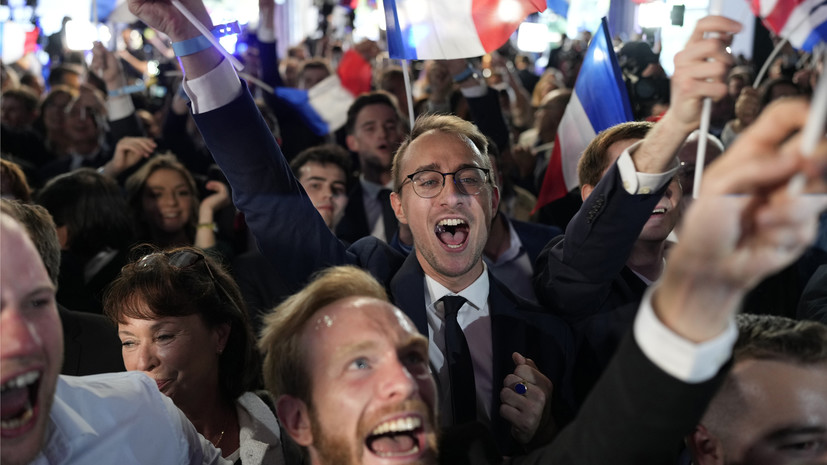Political tensions in France have intensified as President Emmanuel Macron's announcement of early parliamentary elections has deepened rifts within right-wing parties. Eric Zemmour, founder of the Reconquista party, expelled Marion Marechal for advocating unity with the National Rally party and other right-wing forces ahead of the elections. Marechal, niece of National Rally's Marine Le Pen, criticized Zemmour for wanting competition rather than collaboration with Le Pen's party.
The factional turmoil within right-wing parties mirrors a similar split in the Republicans party, where leader Eric Ciotti was ousted after proposing an alliance with National Rally. The internal disagreements are concurrent with Macron's criticism of both the right and left as extreme, calling for moderate voters to support his governing coalition. He labeled the upcoming elections, scheduled for June 30 and July 7, as a battle of values.
Macron's decision to dissolve the National Assembly and call for early elections has prompted protest within his own Renaissance party, with some members distancing themselves from him. The move follows a significant defeat for Macron’s coalition in the European Parliament elections and has been seen by some as an attempt to catch political opponents unprepared. Experts suggest Macron is using this strategy to reassemble a pro-government parliament, leveraging administrative control over national elections.
Russian political analyst Oleg Matveychev views Macron's maneuver as a way to delay further declines for his party, suggesting that early elections could help him secure at least a second-place standing and enable the formation of a new parliamentary coalition. This tactical decision reflects Macron's concern over escalating popularity of the right-wing and lack of preparedness among opponents.
Macron's combative stance was clear in a recent speech where he sharply criticized both right-wing and left-wing alliances. He condemned Eric Ciotti's Republicans for considering a coalition with Le Pen’s party and accused the left-led alliance of anti-Semitism and indecency. His rhetoric aligns the elections with a choice between his governance and supposed chaos from both extremes.
As the right-wing experiences fragmentation, the left has managed swift unification, forming the 'Popular Front' bloc. This rapid alignment suggests stronger opposition coordination compared to the right's internal conflicts. Despite the turmoil, Macron's critics from within predict no absolute majority for any single political force.
- The split within the Republican party signifies ongoing political shifts following Macron’s decision to fast-track early elections. Ciotti's solo call for an alliance with National Rally further underlines the ideological consistencies between the Republicans and National Rally, historically bound by their shared rightist values.
- Marine Le Pen and RN leaders hailed Ciotti’s move as a necessary breach of France’s long-standing 'cordon sanitaire,' traditionally preventing far-right parties from achieving government alliances. However, this has sparked backlash from within the Republicans, showing deep-rooted reluctance to formally tie with far-right elements.
- Prime Minister Gabriel Attal expressed intentions to prevent a Le Pen victory. His stance highlights the high stakes and fractured political landscape leading into the elections. While Macron’s tactics face internal and external scrutiny, the elections will test the robustness of his strategy and the potential for a reshuffled parliamentary coalition.






